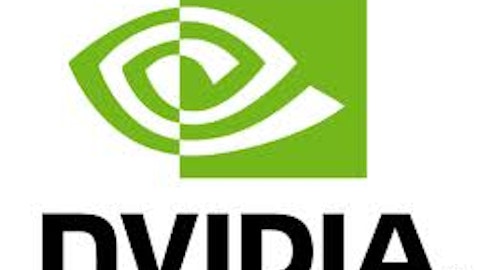GameStop Corp. (NYSE:GME) is a pure play on the market for video games. Unfortunately, a secular trend in technology is undermining Gamestop’s business, and the company likely won’t be able to survive — at least in its present state — for very much longer.
Video game distribution is going digital
Earlier in February, Sony Corporation (ADR) (NYSE:SNE) unveiled its Playstation 4 video game console. At first glance the console, which is slated to arrive this holiday season, seems like a tremendous Christmas present for the retailer. Millions of customers will likely head to their local GameStop Corp. (NYSE:GME) this fall to purchase a Playstation 4. This, in turn, could drum up interest in gaming and drive other business to the retailer. However, in reality, the Playstation 4 represents the beginning of the end for Gamestop.

Sony’s President told The Guardian that all Playstation 4 games will be available as a digital download; only “some” will come on discs. If only select games are available on disc, GameStop Corp. (NYSE:GME)’s stores become unnecessary.
EA wants a piece of the digital action
It isn’t just console makers that want to eliminate the middleman. Electronic Arts Inc. (NASDAQ:EA) has been developing its own digital distribution store known as Origin.
Origin went active in mid-2013 for Microsoft Windows, and has since expanded to Apple Inc. (NASDAQ:AAPL)’s Mac OS. Electronic Arts Inc. (NASDAQ:EA) also plans to bring the service to Google Inc (NASDAQ:GOOG)’s Android. Right now, the service isn’t available for any console, and console makers might want to keep it that way for as long as they can so that it doesn’t compete directly with their own online stores.
But even if Electronic Arts Inc. (NASDAQ:EA)’s Origin never makes it to the console arena, it shows that video game publishers understand the power of digital distribution.
It happened to records, books and movies
The shift in video games shouldn’t come as a surprise. It’s really the same story playing out in yet another media format.
First it was record stores: digital piracy and direct downloads made physical CDs irrelevant, and with that irrelevancy came the decline of the record store business. Next was movies, leading to the bankruptcy of stores like Blockbuster. Physical books, too, seem to be taking their last dying breath, as Borders has gone under and Barnes & Noble, Inc. (NYSE:BKS) struggles to survive.
Even within the video game industry, PC gaming went practically all digital long ago. Peruse around your local Gamestop, and you might see a single, tiny shelf of PC games. Meanwhile, the shelves for Xbox, Playstation, and Wii games fill the entire store.
Gamestop has started to diversify
Perhaps sensing its fate, GameStop Corp. (NYSE:GME) has begun to diversify. The company had long been purchasing, fixing and reselling used video game hardware. In late 2011, Gamestop utilized its expertise in this field to create a market for used tablets.
Its a unique business in the sense that it allows consumers to purchase functional tablets for prices far lower than they otherwise would’ve paid. But it’s competing directly with the manufacturers themselves (Apple sells refurbished iPads on its website), as well as other reselling markets like eBay.




